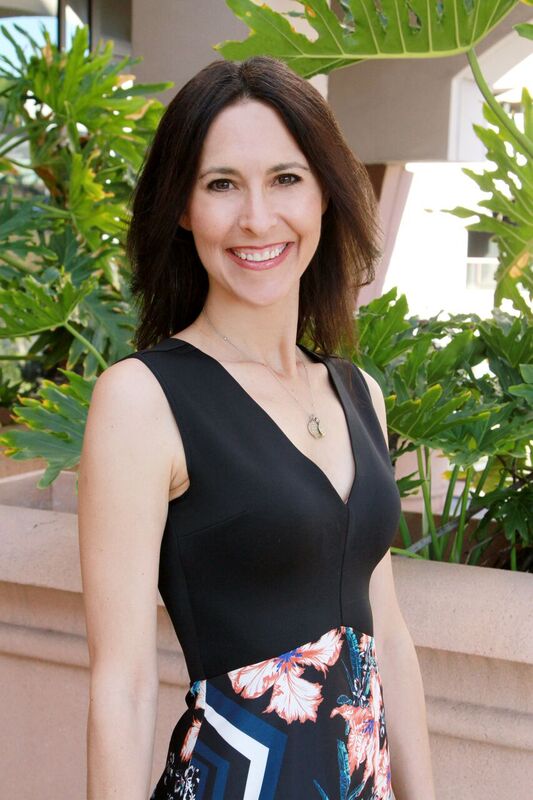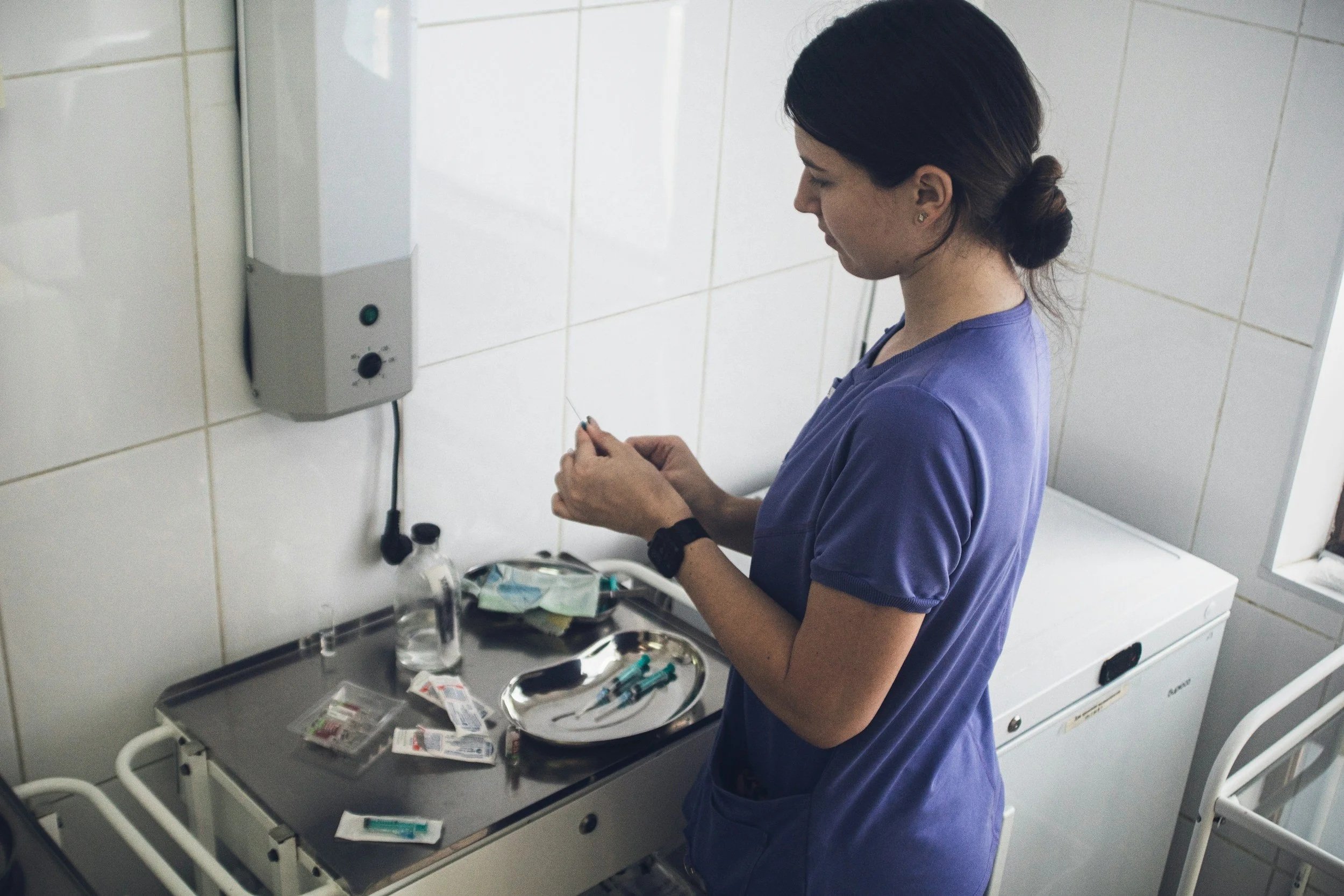Ovarian Hyperstimulation Syndrome (OHSS) is a unique phenomenon that occurs during fertility treatment as a side effect to taking fertility drugs. The culprit is the hCG trigger shot used to induce ovulation after patients have taken gonadotropins. Learn more about ovarian stimulation medications.
OHSS is the body’s reaction to being over-stimulated by gonadotropins, which are used to grow multiple follicles at once, leading to elevated estradiol hormone levels. Hence, OHSS occurs in patients that have a combination of multiple follicles, high estradiol levels, and take the hCG injection. This can occur 2-4 days after the trigger shot and can last for approximately one week. Approximately 10 percent of egg freezing cycles have some mild signs or symptoms of OHSS and less than 1 percent of patients have serious side effects. Close observation and monitoring is done during treatment to prevent OHSS.
The most common symptoms of OHSS are bloating, abdominal pain or pressure, shortness of breath, decrease in urination, and temporary weight gain from the accumulation of fluid in the pelvic cavity. The good news is, OHSS is self-resolving and most symptoms often pass within a week of the trigger.
How do I avoid OHSS?
The best way to avoid OHSS is to be prepared with a personalized medication protocol designed by the physician at the beginning of the egg freezing cycle. Patient age, ovarian reserve testing results, weight, general and gynecological health, toxic exposures, and previous treatment cycles all help the physician individualize the protocol. Once the protocol is finalized, close observation while on the fertility drugs is key. Usually, patients are seen 3 to 4 times for pelvic ultrasounds and hormone monitoring during the 10 day course of medications. At each of these visits, the doctor can modify the dose of the medications as needed.
Once it is time to take the trigger shot, the patient will either take hCG, Lupron, or a combination of both, depending on the estradiol level and number of growing follicles. OHSS can occur in patients who have high estradiol levels at the time of trigger shot and use hCG as the trigger medication. Therefore, in many cases, OHSS will be avoided entirely if the trigger medication is Lupron only. Today, many doctors feel comfortable using Lupron only triggers to avoid OHSS, but some cases will benefit from using hCG as well.
How do I mitigate the symptoms of OHSS?
Increase Fluids to 3L per day including water, all natural unsweetened coconut water, or one can of vegetable juice. Avoid drinks with sugar and diet sodas.
Decrease intake of simple starches including white bread, white rice, and pasta.
Decrease intake of sugars such as in desserts, juices, and condiments like ketchup, BBQ sauce, and salad dressings.
Increase intake of whey protein or eggs.
Abstain from sexual intercourse.
Abstain from physical activity and exercise.
Weigh yourself every day to monitor for fluid accumulation.
Always remember, calling your doctor and being evaluated is the best medicine.

Dr. Alison Peck, M.D., F.A.C.O.G., Southern California native and practicing since 2006, is board certified in both obstetrics/gynecology and reproductive endocrinology/infertility (REI). Dr.Peck is also fluent in Spanish and Hebrew and has a special interest in Genetic Screening of Embryos and Fertility Preservation in Young Reproductive Age Women. Dr. Peck completed her specialty training in obstetrics and gynecology at the University of Southern California and her fellowship in reproductive endocrinology and infertility at the Albert Einstein College of Medicine, New York.
Learn more about about HRC Fertility on Freeze.
Answered by Dr. Roy Handelsman from HRC Fertility. Understand how ovarian cysts and ovarian surgery may impact the egg freezing process.
Answered by Dr. Rashmi Kudesia from CCRM Fertility Houston. Here’s a checklist for before, during, and after your egg freezing consultation, including 11 questions you should ask the doctor.
Answered by Valerie Shafran, MSN, FNP-C from Extend Fertility. Discover why fertility experts urge women to stop taking GLP-1 agonists before an egg freezing cycle.
Answered by Dr. Nidhee Sachdev from South Coast Fertility Specialists. Explore what AMH tells us about a woman’s ovarian reserve or how many eggs she has left.
Answered by Dr. Hade from Generation Next Fertility. Understand how egg freezing does not cause long-term weight gain yet there is a chance of transient bloating.
Answered by Rijon Charne, JD from Sunray Fertility. Explore what a reproductive estate plan entails and the situations where having one can make a big difference.
Answered by Rijon Charne, JD from Sunray Fertility. Learn more about the importance of clinic disposition forms, including what they do and don’t cover.
Answered by Rijon Charne, JD from Sunray Fertility. Discover the legal nuances that can shape your options when freezing eggs or embryos.
Answered by Dr. Joshua Klein from Extend Fertility. Learn how birth control relates to egg freezing and if you will need to stop your hormonal birth control before starting the procedure.
Answered by Dr. Jesse Hade from Generation Next Fertility. Discover the important factors that affect chances of egg freezing success in your late thirties.
Answered by Sidonia Buchtova, PA-C, C-RHI from Refresh Psychiatry. Understand if you can stay on an SSRI or SNRI when freezing your eggs.
Answered by Sidonia Buchtova, PA-C, C-RHI from Refresh Psychiatry. Discover tips to help support your mental well-being during preparation, throughout the cycle, and after your egg retrieval, especially if you have a history of anxiety.
Answered by Dr. Katharina Spies from Vida Fertility. Learn about who should consider supplements before and during fertility preservation, and how supplements could support your egg freezing cycle.
Answered by Dr. Serin Seckin from Generation Next Fertility. Understand the key differences to help you make an informed decision that aligns with your personal and reproductive goals.
Answered by Dr. Ido Feferkorn from the Reproductive Medicine Group. Learn how Polycystic Ovarian Syndrome (PCOS) may affect the egg freezing process and outcomes of fertility preservation.
Answered by Dr. Meera Shah from Nova IVF. Understand the potential risks of egg freezing to help you evaluate if it is right for you.
Answered by Dr. Hade from Generation Next Fertility. Learn from start to finish the entire process of what happens on the final day of an egg freezing cycle.
Answered by Dr. Sahar M. Stephens from Northern California Fertility Medical Center. Understand the probability of pregnancy based on the number of eggs frozen and the age at which you freeze.
Answered by Dr. Alison Peck from HRC Fertility. Discover which medications are commonly used for ovarian stimulation during an egg freezing cycle.
Answered by Dr. Kathryn Snow from Piedmont Reproductive Endocrinology Group (PREG). Understand the side effects that you may experience when freezing your eggs.
Answered by Lia Schiller, MSN, AGNP-BC from Extend Fertility. Learn why IUDs can stay in place throughout the egg freezing process.
Answered by Dr. Woo from HRC Fertility. Learn how some medications need to be stopped for an egg freezing cycle while some medications can be continued.
Answered by Dr. Dan Nayot from The Fertility Partners. Learn how artificial intelligence is providing women with more information than ever before about their eggs.
Answered by Dr. Joshua Klein from Extend Fertility. Egg freezing doesn’t impact your chance of getting pregnant naturally, because egg freezing makes use of eggs that would otherwise have been lost.
Answered by Dr. Dan Nayot from The Fertility Partners. Understand the distinction between egg quantity and quality, and explore how AI is transforming egg quality analysis.
Answered by Dr. David E. Tourgeman from HRC Fertility. Understand what options exist for what to do with your frozen eggs if you decide not to use them for IVF.
Answered by Dr. Armando Hernandez-Rey from Conceptions Florida. Learn about minimal stimulation egg freezing cycles and how they can decrease the risk of ovarian hyperstimulation syndrome.
Answered by Dr. Ido Feferkorn from the Reproductive Medicine Group. Find out how egg freezing medications work and how protocols can be adjusted if you can’t take estrogen.
Answered by Dr. Ido Feferkorn from Reproductive Medicine Group. Learn how egg freezing fits into the menstrual cycle and how timing can be customized.
Answered by Dr. Elena Santiago from Vida Fertility. Understand the ins and outs of egg freezing in Spain as a non-resident, including timing, costs, and more.































